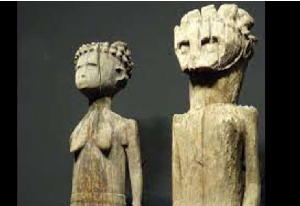Great granddaughters of Madagascar king executed by French troops demand return of his skull

They are also seeking restitution for two additional skulls belonging to Sakalava individuals. These remains were plundered during the late 19th-century French colonial conquest and are currently housed at the Musée de l’Homme in Paris, along with numerous other human remains from Madagascar.
King Toera was beheaded in 1897 in Ambiky, the former capital of the Menabe region, during a French colonial troop attack to suppress a rebellion. Despite attempts, DNA tests have not definitively confirmed the identity of King Toera’s skull, according to RFI.
During the Taombaovao celebrations for the Malagasy New Year in Antananarivo on March 11, French ambassador Arnaud Guillois received a letter from two of King Toera’s great-granddaughters.
While the initial request for restitution by Sakalava King Magloire for Princess Julia Georgine Kamamy dates back to 2003, this recent appeal holds particular significance.
Princess Marie Francia Kamamy, the eldest daughter of Queen Georgette Kamamy and a descendant of King Toera, noted that this is the first direct request made under President Andry Rajoelina’s administration.
“The reason why this restitution is so important to us is that according to Malagasy traditions, if our grandfather’s body is not in its entirety in the tomb, his soul wanders endlessly,” she told RFI.
“He can’t fulfill his role as a protective ancestor for his people and his descendants.
“That’s why we, the family, are asking for his skull to be returned to us. It would be a sign of forgiveness between the Malagasy and the French.”
France’s representative noted that he was aware of the significance of the restitution request, reaffirming the fact that the shared past of Franco-Malagasy relations is important for their future engagements.
The French embassy in Madagascar confirmed receipt of the letter, which was promptly forwarded to French Culture Minister Rachida Dati.
A joint commission is anticipated to decide soon on the return of King Toera’s skull and the other two skulls.
The French law on restitution of human remains from public collections, enacted on December 26, is part of a broader ethical review of French museum holdings.





